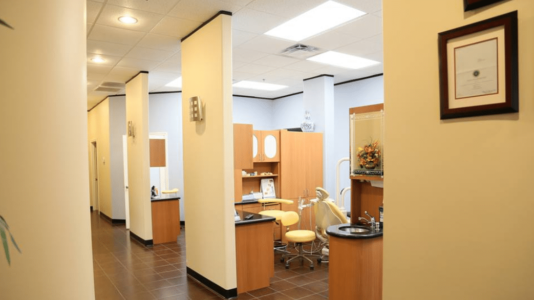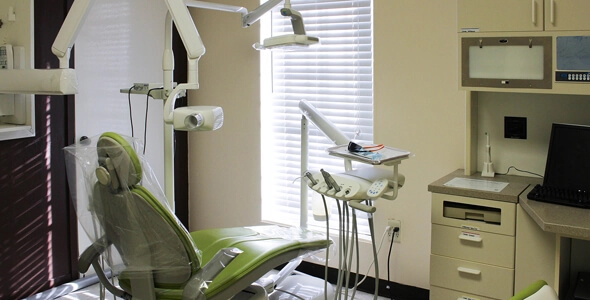Tooth loss is common, but that doesn’t mean it’s easy. There are lots of challenges that come with missing teeth. For example, it has a major impact on your self-confidence. You may not want to smile anymore because you’re afraid of what people will think. You have a hard time eating/chewing, so you have to opt for softer foods that don’t require a lot of effort to eat. Finally, you may have trouble talking to people because you have trouble enunciating your words with missing teeth.
The good news is, at A Dental Care, you have options for replacing those missing teeth and two of the most common options are traditional dentures and implant-supported dentures.
In some ways, implant-supported dentures are a better option and in other ways, traditional dentures are the better choice. You must weigh the pros and cons of each to decide which one is best for you. In this article, we’ll help you do just that!
Traditional Dentures
Traditional dentures are a dental prosthetic that you wear to address your tooth loss. This solution is for patients who are missing most or all of their teeth. You can get full or partial dentures, depending on how many teeth you are missing. They are held in place by bracing around your jawbone and gum.
When you’re wearing traditional dentures, you can bite and chew as normal. Plus, they give you the confidence you were missing before.
Who is an ideal candidate for traditional dentures?
The most ideal candidate for traditional dentures are patients who are missing most or all of their teeth. Also, their dental health needs to be good overall. You can get denture plates for both the upper and lower dental arches.
Implant-Supported Dentures
The term “implant-supported denture” refers to dentures that are anchored into place with dental implants. A dental implant is a titanium screw that is implanted into the jawbone that acts as a tooth root. It looks and acts like a natural tooth root and is used to support a variety of tooth replacement options, such as bridges, crowns, and dentures.
In most cases, when it comes to implant-supported dentures, we will use at least for implants, if not more. If we use four implants, we place two in the back and two in the front. If we need to place more, we’ll discuss the other potential configurations based on your mouth anatomy.
Who is an ideal candidate for implant-supported dentures?
The most ideal candidate for implant-supported dentures are patients who are missing most or all of their teeth. However, there needs to be enough bone density in the jaw and gum tissue for the implants to be placed. Also, they must not have other medical issues that could bring risks or complications to the oral surgery. Finally, it’s critical that they fully understand the treatment and recovery process, along with potential side effects associated with the surgery so they have realistic expectations.
Things to Keep in Mind When Choosing between Traditional and Implant-Supported Dentures
There are several things you need to keep in mind when making the choice between these two tooth replacement options:
How is the jawbone affected?
Traditional dentures sit on the bone. This means the jawbone is not being used, so it will begin to deteriorate and absorb into your system. You begin to lose bone density, which means you lose your ability to use it in the future. Therefore, if you want dental implant options, you need to do that as soon as possible.
On the other hand, implant-supported dentures positively affect your jawbone. The titanium screws are inserted into the jawbone, acting as an artificial tooth root. This keeps your jawbone alive so that it does not deteriorate. Therefore, implant-supported dentures prevent the ‘sunken face’ due to jawbone density loss that often accompanies missing teeth.
How is your chewing ability affected?
Implant-supported dentures are attached to dental implants, which means that you can chew a variety of foods. Typically, bite force is a lot stronger with implant-supported dentures than it is with traditional dentures. This means that with implant-supported dentures, you can eat foods that are restricted for patients with traditional dentures. A few of these foods include steak, chips, and corn on the cob.
On the other hand, the bite force with traditional dentures is significantly reduced because they are not held in place by dental implants. Therefore, you must use caution when eating with traditional dentures. In fact, most dentists recommend that you only eat soft foods when you have traditional dentures.
How is your speaking and smiling ability affected?
Implant-supported dentures are much more stable, which means it’s a lot easier to enunciate your words when speaking. On the other hand, patients with traditional dentures often have a lisp when speaking because they are not securely attached.
It’s important to note that both types of dentures must be removed and cleaned each night to get rid of bacteria and give your mouth a break. Most patients agree that implant-supported dentures look more natural than traditional dentures and since they are only supported by adhesive, traditional dentures may slip around or fall out of your mouth during the day.
Are you Considering Dentures?
If you are among the millions of Americans that are missing teeth and are considering dentures as a replacement option, the team at A Dental Care is here to help. We would love to help you weigh the pros and cons of traditional dentures versus implant-supported dentures, as well as the many other options that we offer.
We understand that living without teeth can be difficult and we want to do what we can to give you back your smile and your confidence. Schedule your consultation at your local clinic location today so we can get started. The sooner we get started, the sooner you’ll be feeling like your old self again. Our office staff can work with your dental insurance to determine coverage. We also offer several financing options if you are unable to afford treatment costs upfront.











